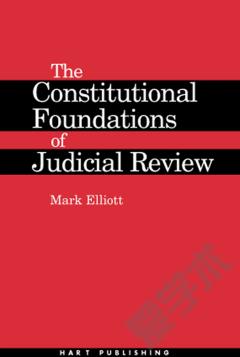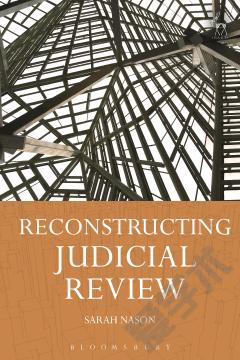The Constitutional Foundations of Judicial Review
Part 1 Justifying judicial review: the rise of judicial review the challenge -justifying judicial review the notion of constitutional legitimacy the importance of examining constitutional legitimacy conclusion. Part 2 The traditional ultra vires principle: structural coherence and internal coherence the artificiality of the ultra vires principle passive artificiality active artificiality the emptiness of the ultra vires principle the radical and the moderate. Part 3 Legislative frameworks and the control of discretionary power: the constitutional status of legislative intention legislation and the scope of discretionary power conclusion. Part 4 The modified ultra vires principle: judicial review and the rule of law ultra vires methodology in a constitutional setting the modified ultra vires principle - overcoming the deficiencies of the traditional model the advantages of the modified ultra vires principle over the common law theory of review conclusion. Part 5 Beyond the logical boundary? judicial review of non-statutory power: the sources of governmental power judicial review of prerogative power judicial review of de facto governmental power conclusion. Part 6 Judicial review and human rights: human rights in the United Kingdom the constitutional foundations of human rights review the legal basis of human rights review conclusion. Part 7 The constitutional foundations of judicial review: constitutional justification and normative justification a context-sensitive approach to constitutional justification impetus and implementation conclusion.
{{comment.content}}








 京公网安备 11010802027623号
京公网安备 11010802027623号